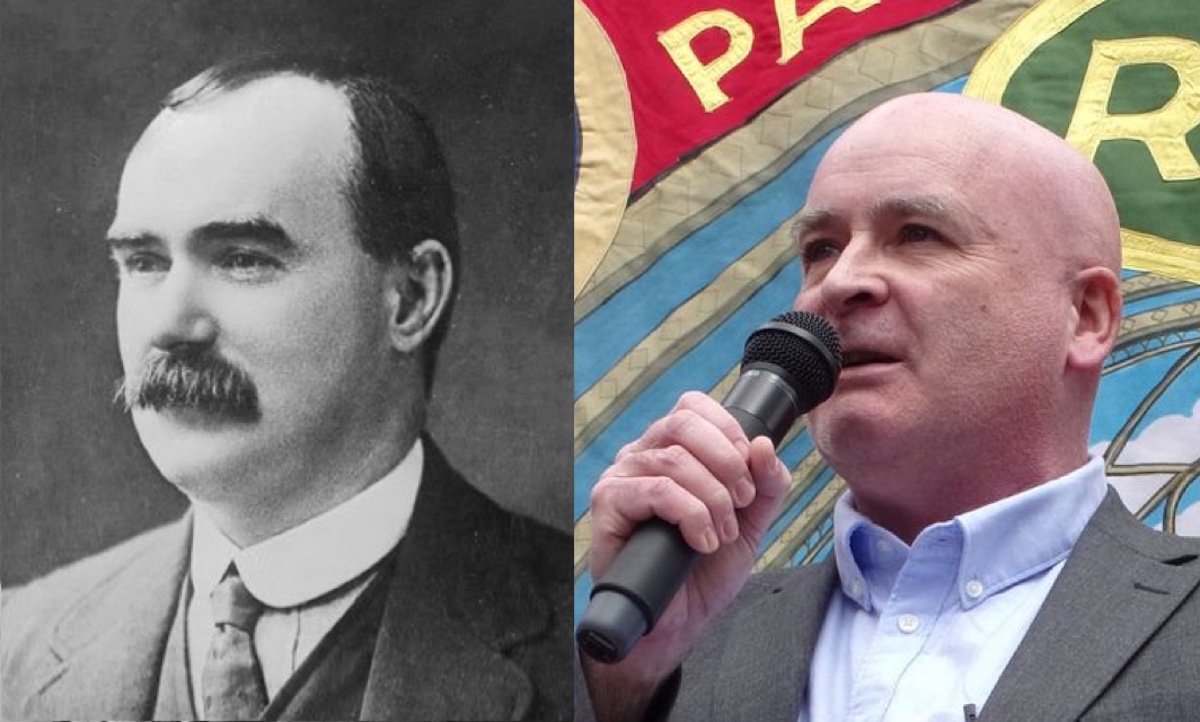
Irish republican socialist James Connolly is back in vogue in Britain amid increasing signs of a new political awakening there.
A rail union leader who has captured the imagination of millions last week named the 1916 Rising martyr James Connolly as his hero.
Attacked by the British mainstream media over his union’s demands for better pay and conditions, the unflappable Mick Lynch spoke out bravely against Tory-driven inequality and exploitation.
The secretary-general of the National Union of Rail, Maritime and Transport Workers (RMT) has become a household name for his no-nonsense style interviews, combatting the likes of Piers Morgan, Kay Burley, Richard Madeley and more.
His media appearances have gone viral and his union’s three-day strike action have won unusually strong support from the British public.
Born in 1962 to Irish parents who moved to London during the Second World War, Mr Lynch said he was inspired by Connolly, an Irish republican and trade union leader, on ITV’s politics programme, Peston.
“(He was) a socialist republican,” he said.
“He educated himself and started non-sectarian trade unionism in Ireland and he was a hero of the Irish revolution.”
Connolly, who was born in Edinburgh and lived most of his life in Scotland, was one of the signatories of the Proclamation of the Irish Republic and led the Dublin Brigade in the Rising. He was later executed by British forces.
In a separate development, Scotland’s first minister has made a daring move for independence in a move which also has parallels to Ireland.
Nicola Sturgeon has proposed a date for a second referendum on Scottish freedom next year, and if blocked by London, a plan of action which could lead to a declaration of independence within the next two years.
Naming the date for a referendum as October 19, 2023, Sturgeon revealed that court papers had been served for an action at the Supreme Court in London in order to “deliver clarity and legal certainty in a timely manner”.
Officials in London said Sturgeon’s effort to declare a Scottish referendum to be lawful had “blindsided” them.
If the court rules that Scotland does not have the power to hold a referendum, exposing the oppressive nature of England’s rule, Ms Sturgeon said the next general election would become a “de facto referendum”, with her SNP party standing on a single issue of independence.
Such an election would have parallels with the 1918 election in which Sinn Féin won an overwhelming majority of the seats in Ireland, a key stepping stone on the route to freedom for the 26 Counties.
Ms Sturgeon said that the Scottish government would “make the positive case for independence” in the coming months and would “do so with commitment, confidence and passion”.
![[Irish Republican News]](https://republican-news.org/graphics/title_gifs/rn.gif)
![[Irish Republican News]](https://republican-news.org/graphics/title_gifs/harp.gif)

